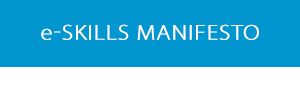ΝΕΑ

16/12/2015
ICT student numbers on the rise again, but European firms are slow to adopt digital technologies
BRUSSELS (December 15th 2015) - The gap between the number of job seekers in Europe and the number of unfilled digital jobs is forecast to shrink, according to the latest research from analyst Empirica. This is one of the findings unveiled at the conference entitled "Transforming Europe towards the Digital Age" in Luxembourg today.
The shortage of trained candidates will reach 756,000 by 2020, Empirica said. This is down from an estimated 820,000, forecast at the beginning of this year. The decline reflects an increase in the number of ICT students, Empirica found. The number of ICT students has been in decline in recent years. However, while the largest companies are managing to digitally transform themselves, most European firms across a wide range of industries are lagging behind, according to new data from the Digital Entrepreneurship Scoreboard, also released at the Luxembourg event today.
Only 1.7% of European companies make full use of advanced digital technologies such as big data analytics, cloud, social media and mobile solutions, according to the Scoreboard. Adoption rates differ from country to country: from 1.2% adoption in Italy to 2.6 % in the UK. Overall 41% of European businesses do not use any of these technologies.
“This represents a big, untapped potential,” the European Commission concluded in its summary of the latest Digital Entrepreneurship Scoreboard. “Across all sectors, digital can drive productivity and innovation, by allowing European organisations to reach new markets and customers, automate and streamline business processes and create completely new business models, products and services,” the Commission said. The narrowing of the skills gap is “excellent news, after eight years of hard work led by the European Commission to address this problem,” said John Higgins, Director General of DIGITALEUROPE.
However, he added: “We certainly shouldn’t be complacent. Over three quarters of a million unfilled digital jobs in 2020 is still a big problem that will require more work to address.”
The eSkills campaign, run by DIGITALEUROPE and European Schoolnet, is part of the European Commission’s efforts to adapt Europe’s economy to the new digital reality. The digital transformation is a process championed in the European Commission’s Digital Single Market strategy. The ICT skills needed to transform traditional industries mean that eSkills will be needed more widely than ever.
“Europe has to compete at the high-end and ensure its traditional industry fully captures the value of digitalisation,” said Vincent Fosty, a partner at the Belgian arm of DELOITTE.
WATIFY campaign has held 187 events across 20 different countries, reaching an audience of over 18,000 people. And WATIFY-branded videos have been viewed nearly 300,000 times on Youtube and Facebook.The Luxembourg event, which runs under the title: "Transforming Europe towards the Digital Age", will also unveil the latest eSkills Manifesto, a document which highlights the importance of digital skills for the European economy, as it embarks on the digital transformation that is-reshaping economies around the world.
“The eSkills Manifesto comes at a time when there is a heightened sense of urgency to equip citizens for the jobs of the future,” said Mr Fosty. The latest Manifesto includes a special introduction by Andrus Ansip, Vice-President of the European Commission, and contributions from a cross section of eSkills experts including senior corporate leaders, policy makers, leading market researchers and country experts who provide a comprehensive analysis of the digital transformation, its challenges and opportunities, in Europe and beyond.
“To fully benefit from the digital transformation, Europe must support the recognition for digital skills and qualifications, raise its level of ICT professionalism and develop a pool of talented eLeaders,” said Kirsi Ekroth-Manssila, from the European Commission.
The eSkills Manifesto is a blueprint for making this happen. Now in its fourth edition, the Manifesto is based on a broad cross-section of perspectives and is a stepping-stone on the road to developing a policy framework that will deliver a digitally literate workforce and a technologically advanced and competitive European economy.










